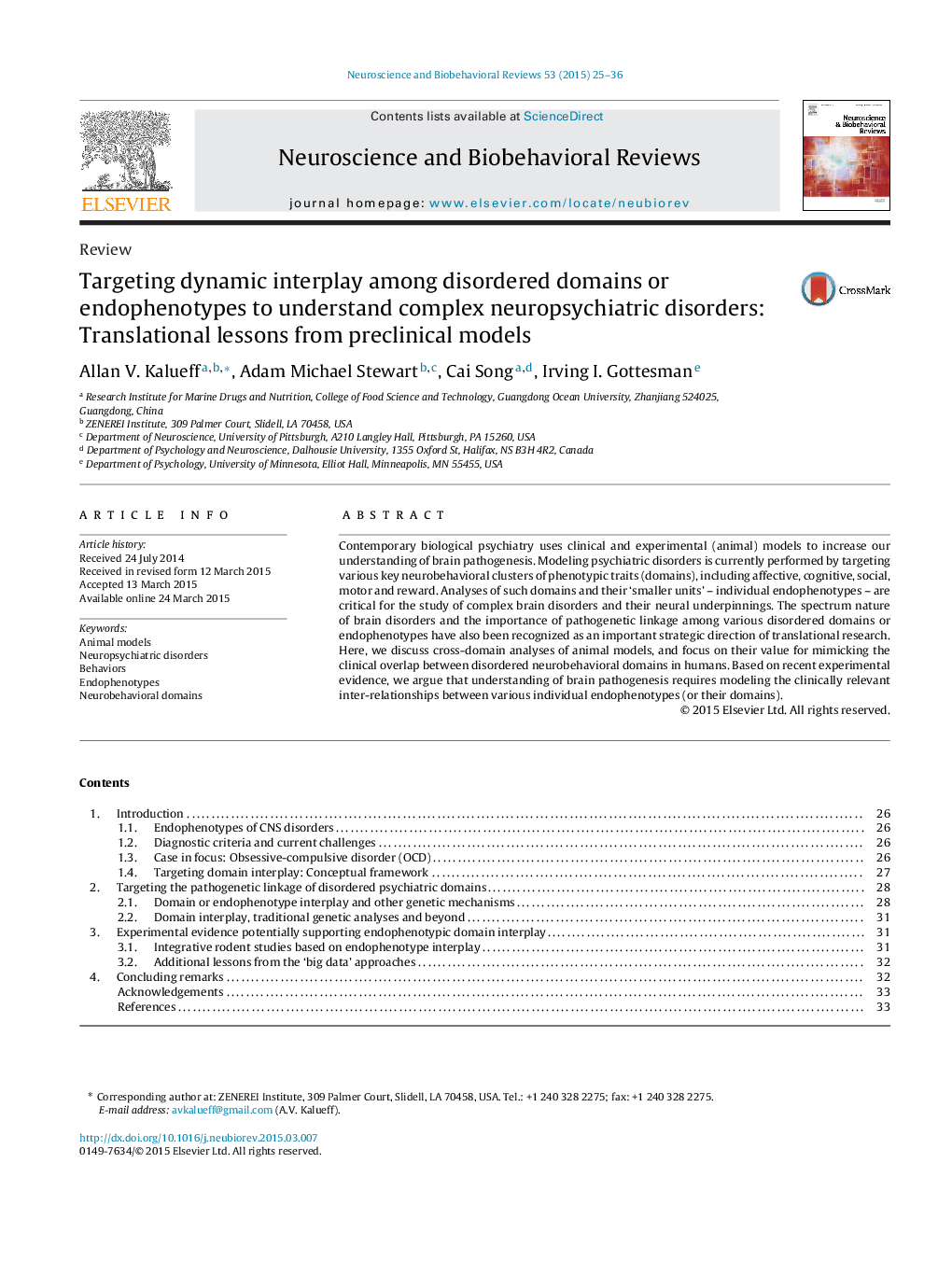| Article ID | Journal | Published Year | Pages | File Type |
|---|---|---|---|---|
| 7303385 | Neuroscience & Biobehavioral Reviews | 2015 | 12 Pages |
Abstract
Contemporary biological psychiatry uses clinical and experimental (animal) models to increase our understanding of brain pathogenesis. Modeling psychiatric disorders is currently performed by targeting various key neurobehavioral clusters of phenotypic traits (domains), including affective, cognitive, social, motor and reward. Analyses of such domains and their 'smaller units' - individual endophenotypes - are critical for the study of complex brain disorders and their neural underpinnings. The spectrum nature of brain disorders and the importance of pathogenetic linkage among various disordered domains or endophenotypes have also been recognized as an important strategic direction of translational research. Here, we discuss cross-domain analyses of animal models, and focus on their value for mimicking the clinical overlap between disordered neurobehavioral domains in humans. Based on recent experimental evidence, we argue that understanding of brain pathogenesis requires modeling the clinically relevant inter-relationships between various individual endophenotypes (or their domains).
Related Topics
Life Sciences
Neuroscience
Behavioral Neuroscience
Authors
Allan V. Kalueff, Adam Michael Stewart, Cai Song, Irving I. Gottesman,
